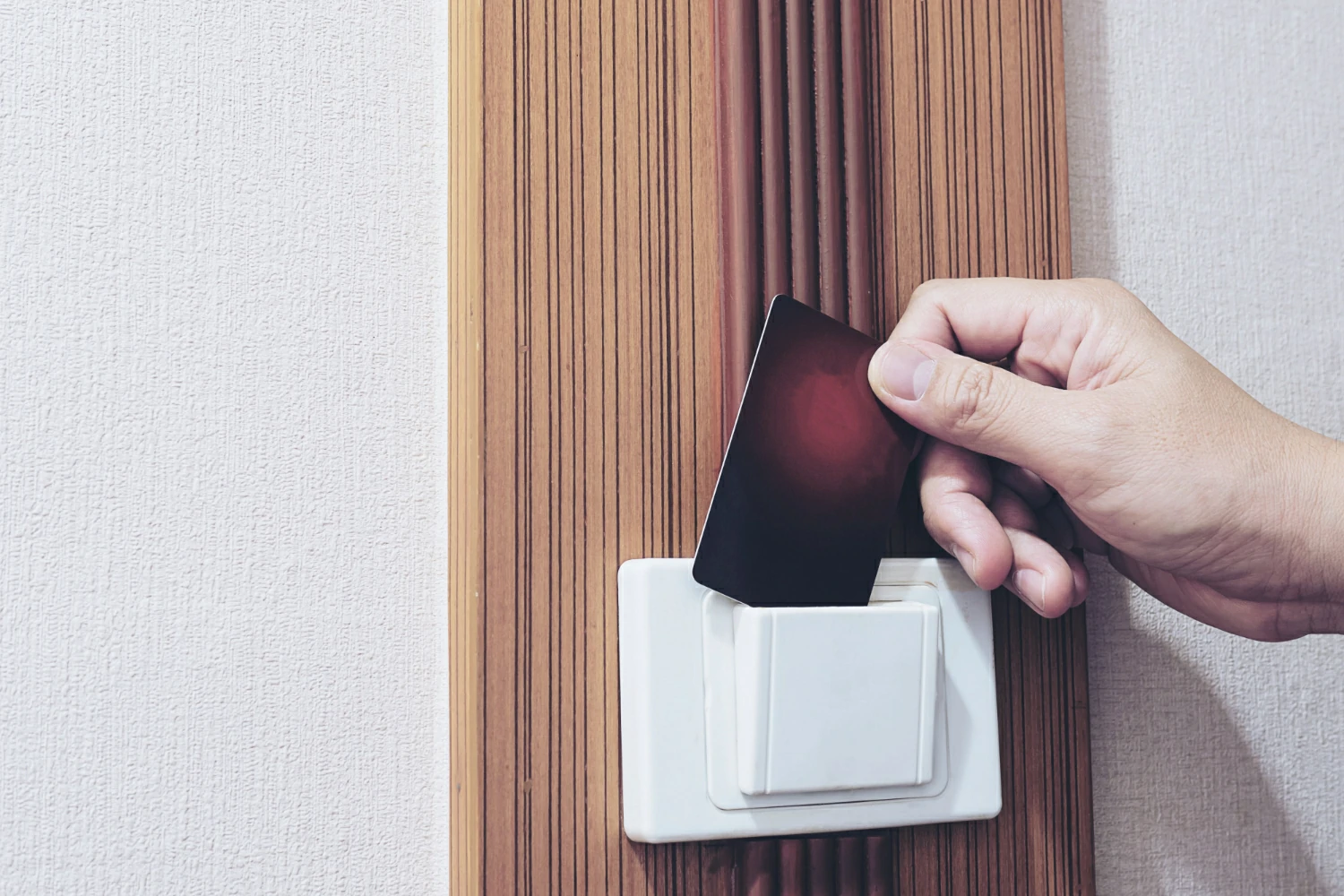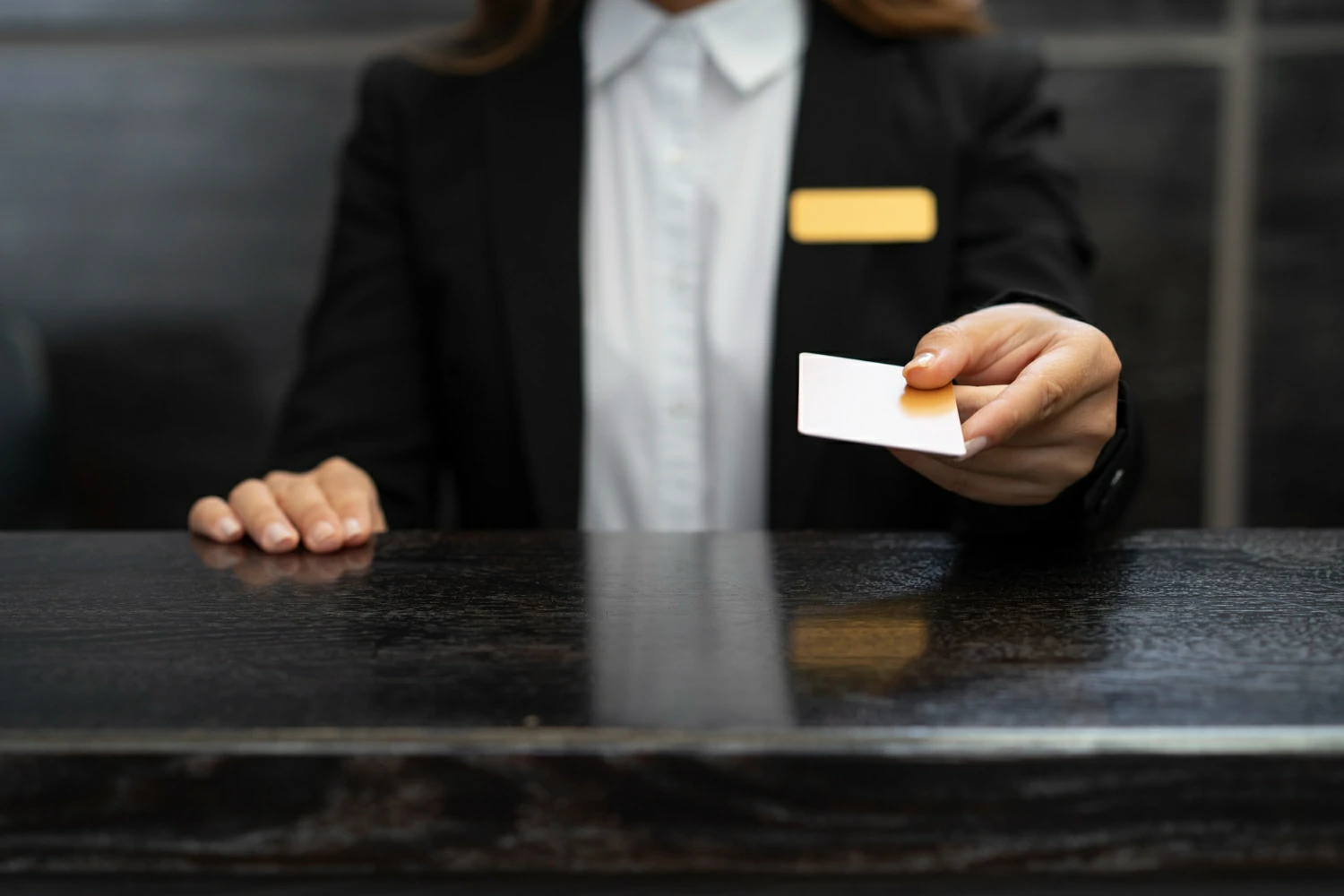Do you have to return hotel key cards? Answer is – In most cases, yes. Hotels generally expect you to return key cards upon checkout. This allows them to reprogram the cards for future guests and maintain security. While the cards might deactivate after your stay, returning them helps the hotel manage their inventory and potentially reduces waste. Some hotels may charge a fee for unreturned key cards.
Summary
- Hotels prefer that you return key cards upon checkout.
- This practice aids in security and inventory management.
- Unreturned key cards could potentially lead to a fee.
Do you have to return hotel key cards?

Gone are the days of bulky metal keys jangling from a hefty hotel keychain. The modern hotel experience often begins with the sleek exchange of a plastic key card – a seemingly simple object that holds the temporary power to unlock your room and, for some hotels, a host of other amenities.
But have you ever stopped to think about the evolution of these ubiquitous cards and why hotels are so keen on getting them back after your stay?
The Evolution of Hotel Key Cards
The journey of hotel key cards mirrors the broader technological advancements in security and convenience. Early iterations were simple punched cards, not unlike the computer punch cards of yesteryear. These gave way to magnetic stripe cards, the kind still widely familiar from credit and debit cards. Their magnetic stripes encoded basic room access information.
The rise of RFID (Radio-Frequency Identification) technology revolutionized hotel key cards. These contactless cards communicate with a room’s lock via radio waves, enabling a simple tap for entry. Today, many hotels are even experimenting with smartphone-based keys, where your mobile device itself becomes your digital room key.
Why Returning Key Cards Matters
While it might seem like leaving with your key card is a minor matter, hotels have several compelling reasons why they emphasize their return:
Security First and Foremost: Even if your key card automatically deactivates after checkout, hotels prefer to reprogram them with the next guest’s information. This proactive step minimizes the risk of unauthorized room access, even in the unlikely event that a deactivated card finds its way into the wrong hands. “Security is our top priority,” emphasizes Sarah Thompson, Operations Manager at the Grandview Hotel, “Reprogramming key cards is a crucial step in ensuring our guests’ safety and belongings are protected.”
Inventory Management: Hotels invest in a large number of key cards, and keeping track of them is essential for efficient operations. Returned cards allow hotels to quickly determine if they have enough supply on hand, avoiding delays in room assignments. Unreturned cards necessitate replacements, adding to the hotel’s operating expenses.
Environmental Impact: Though small, key cards are typically made from plastic. While some hotels may have dedicated recycling systems for returned cards, those left behind often end up in landfills. By returning your key card, you play a small part in reducing waste and supporting the hotel’s sustainability efforts.
Reasons to Return Hotel Key Cards

1. Security
Security sits at the heart of why returning those plastic cards is so important to hotels. Let’s break down the key aspects:
Reprogramming Prevents Unauthorized Access: Most hotel key cards, whether magnetic stripe or RFID, are designed to deactivate upon your scheduled checkout time. However, hotels don’t take chances. Reprogramming those cards with the next guest’s information is a standard security protocol. “Even with automatic deactivation, reprogramming is a non-negotiable step for us. It’s about providing absolute peace of mind for our guests,” states Robert Evans, Security Director at the prestigious Lakeside Resort.
Protecting Guest Privacy: Your hotel key card may hold more data than you realize. Beyond just your room number, high-tech key systems might link it to your name, and in some hotels, even credit card information for charging privileges. Returning the card means this data gets wiped, protecting not only the next guest but your personal information, too.
The Low-Risk Reality: It’s important to be realistic – the chance of someone finding your deactivated card and using it for malicious entry is slim. However, hotels operate on the principle of minimizing any potential risk, no matter how small.
2. Inventory Control
While security might be top-of-mind, there are practical reasons behind the ‘return your key cards’ message:
Tracking Card Usage: Hotels need to maintain sufficient inventory of key cards to accommodate all their guests smoothly. Returned cards give them an accurate sense of how many are actively in circulation versus those unaccounted for. This helps avoid delays during busy check-in periods.
Reducing Replacement Costs: Replacing lost key cards adds up. Even though the individual cost per card is relatively low, a steady stream of unreturned cards becomes a notable expense for the hotel. These costs can indirectly trickle down to guests in the form of higher room rates.
3. Environmental Considerations
A growing factor in the key card equation is the environment:
Potential for Recycling or Safe Disposal: Responsible hotels likely have systems in place to either recycle old key cards or dispose of them in a way that reduces landfill waste. While any single card’s impact is minimal, when scaled across the vast hotel industry, every small action matters.
What Happens If You Don’t Return a Hotel Key Card?

The truth is, in most cases, if you forget to return your key card… probably not much. Hotels understand that people get busy, checkout mornings can be hectic, and sometimes things slip our minds. However, depending on the specific hotel’s policies, there could be a few consequences:
1. Fees and Charges
Replacement Costs: The most common outcome of an unreturned key card is a small fee added to your final bill. This fee typically ranges from $5 to $20, but could be higher in luxury hotels with more sophisticated key systems. It’s designed to cover the cost of producing a new card and the associated reprogramming.
Administrative Fees: Some hotels might include an administrative fee on top of the replacement cost. This accounts for the staff time involved in processing the missing card, updating their systems, and potentially contacting you to arrange for its return.
“Lost Key Card” Charges – Be Informed
It’s important to distinguish between accidentally forgetting your key card and intentionally keeping it. If you dispute a key card fee on your bill, the hotel will likely be able to see if the card was used after your checkout time. Attempting to take a key card as a souvenir without authorization could lead to more serious charges.
2. Potential Security Concerns
While hotels do everything they can to minimize risk, an unreturned key card, especially an RFID card, could theoretically pose a slight security concern.
In the unlikely scenario that someone finds your card and figures out which hotel it belongs to, they could attempt to access the building. That said, the chances of this being successful are slim, due to:
- Deactivation: Most cards deactivate automatically upon checkout.
- Reprogramming: Standard security practice dictates reprogramming even deactivated cards
- Limited Information: Key cards rarely have your name or room number visible, minimizing the likelihood of someone connecting it to a specific room.
3. Inconvenience
Mailing the Card Back: If the hotel charges you and you realize you still have the card, you might be asked to mail it back to them. This creates an extra hassle for you and an administrative task for the hotel.
Potential Delays at Future Stays: While uncommon, some hotels may keep a record of guests who repeatedly fail to return key cards. This could potentially lead to a request for a deposit or other inconveniences at future check-ins.
Additional Considerations

1. Hotel-Specific Policies
While most hotels have a general expectation of key card returns, their specific policies and how strictly they enforce them can vary. Here’s why it’s worth paying attention:
Smaller Hotels vs. Large Chains: Smaller independent hotels might have less formalized key card procedures compared to large hotel chains. They generally have less key card inventory and may be more likely to waive a small replacement fee if it’s an honest mistake.
Resort Properties: Resorts with sprawling grounds often place a higher emphasis on key card returns. This is due to increased security concerns across a larger area and may also tie into access control for amenities like pools and fitness centers.
Communicated Policies: Always look for clearly stated hotel policies regarding key cards. These might be found on your in-room welcome materials, their website, or even the key card sleeve itself. Being aware upfront saves any surprises at checkout.
2. Key Card Collection Methods (Drop boxes, front desk)
To streamline the return process, hotels use different methods:
Front Desk: The most traditional approach is to hand in your key cards directly at the front desk upon checkout. This allows for immediate reprogramming and a chance to address any questions or potential fees.
Dedicated Drop Boxes: Many hotels offer secure drop boxes, often located near the lobby or elevators. This is convenient for guests with early departures or those who want to avoid potential queues at the front desk.
Mail-Back Options: Some hotels provide pre-addressed and stamped envelopes for returning key cards by mail. This is particularly helpful if you realize you’ve left with the card after arriving back home.
3. The Future of Keyless Entry
The world of hotel access is rapidly evolving, and key cards as we know them might eventually become a thing of the past. Here’s a glimpse into the exciting possibilities:
Smartphone-Based Keys: Many major hotel chains are already rolling out systems where you use a dedicated app on your smartphone as your room key. Through secure Bluetooth or NFC technology, you tap your phone against the door lock for access. Example: Hilton Honors Digital Key.
Beyond Room Access: Keyless entry on your smartphone has the potential to streamline the entire hotel experience. Imagine unlocking the hotel’s main entrance, the gym, or even ordering room service, all through your phone.
Advantages: Keyless systems offer convenience for guests (no more fumbling for cards!), enhanced security through encryption, and reduced waste for hotels.
Emily Roberts Expert Opinion
“Keyless entry is the future of hotel stays. It addresses guest pain points, offers potential for personalization, and aligns with the increasing use of smartphones for everyday tasks,” states Emily Roberts, a hospitality technology consultant.
Conclusion
While the humble hotel key card might seem like a small detail in your travel experience, understanding its role and the reasons behind returning it highlights both practical considerations for hotels and responsible guest behavior. Here’s a recap of the key points:
- Security is Paramount: Returning key cards allows hotels to promptly reprogram them, safeguarding your privacy and the security of future guests.
- Inventory and Costs: Returning cards helps the hotel manage resources, reduce replacement costs, and potentially keep room rates more affordable for guests in the long run.
- Environmental Impact: Doing your part by returning key cards contributes, even in a small way, toward reducing plastic waste.
- Keyless Future: While exciting technology is changing how we access our hotel rooms, returning traditional key cards is still the expected practice for now.
The simple act of returning your key card is a sign of consideration for the hotel, its staff, future guests, and even our planet.
FAQs
Q: What if I forget to return my key card and have already left the hotel?
Contact the hotel as soon as possible. Many will have procedures in place for you to mail the card back to avoid any additional fees.
Q: Can hotels track if I use my key card after checkout?
Typically, yes. Most key card systems log usage data, including attempts to use deactivated cards. This aids in security and helps identify situations where a card might have been taken intentionally.
Q: Are hotels phasing out key cards entirely?
The trend is definitely toward keyless technology. However, it will likely be some time before traditional key cards disappear completely. Many hotels will offer a choice for the foreseeable future as this technology becomes more widespread.
Q: Do I have to return a souvenir key card sleeve or holder?
Generally not. Many hotels include information or even advertising on the holder itself, and those are intended for you to keep. It’s the card within that requires returning.







